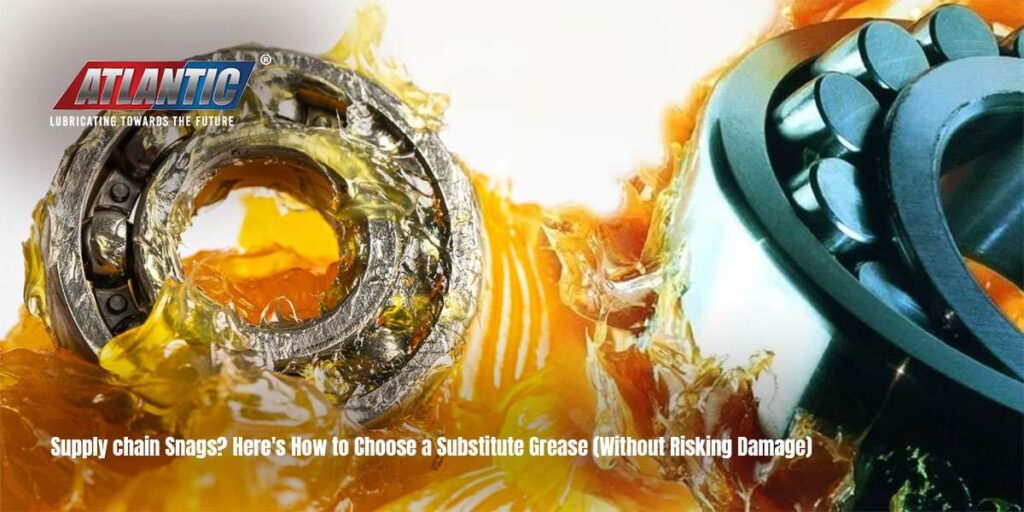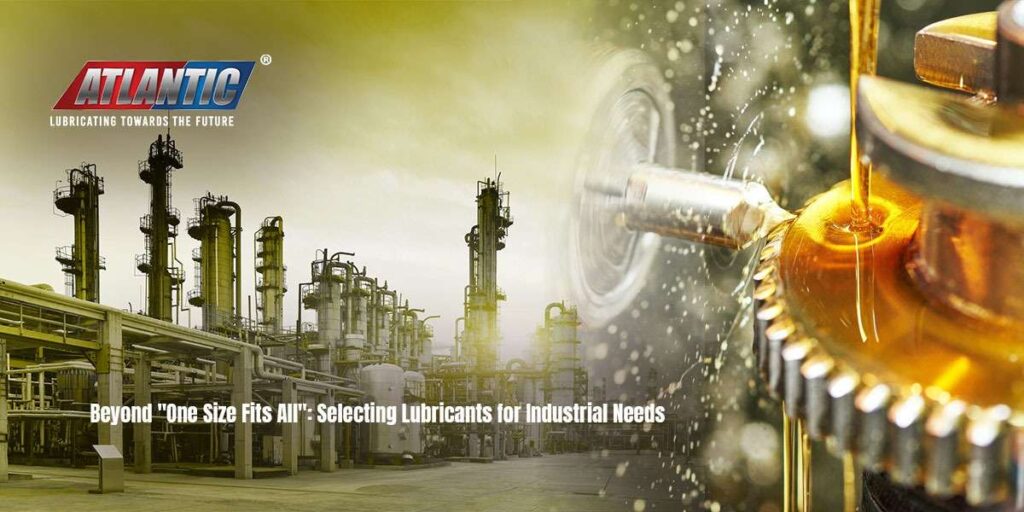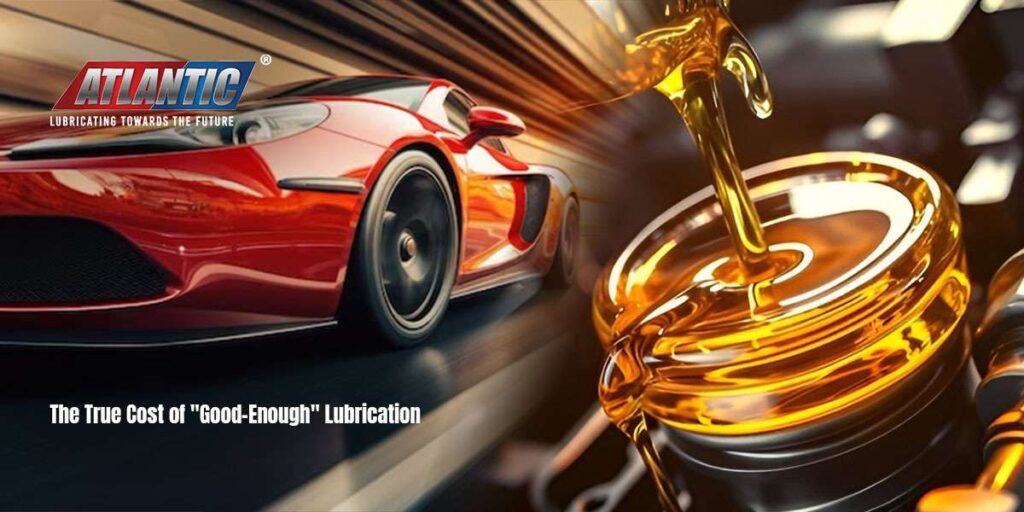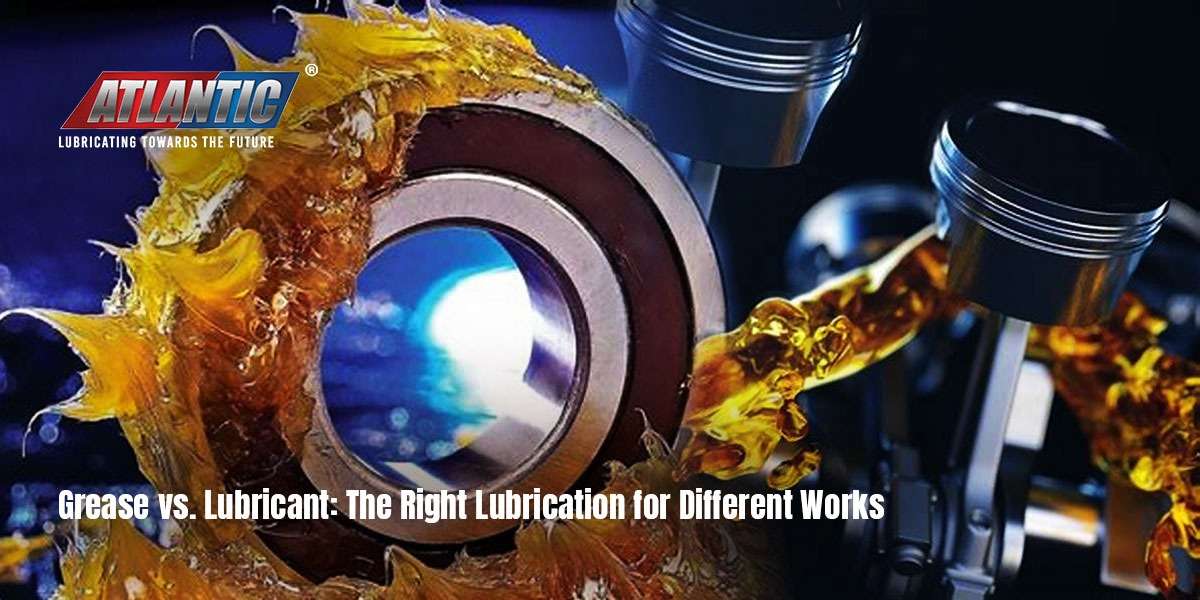If you are a vehicle owner or are related to an industrial environment, choosing the right lubricant is necessary for the unbreakable working of the machinery/engine and its related tools. Grease and oil have distinct strengths, and to understand those differences is your first step toward smoother operations. This is also necessary for higher efficiency and healthier machines.
What is Grease, and Why Would You Choose It?
- Grease functions in the same way as oil, much like the sort of oil that you put in your automobile. On the other hand, thickening is caused by a chemical that gives the grease its semi-solid consistency. Consider the thickening to be a sponge that is responsible for retaining greases in place.
- Giving power is the most significant benefit that grease possesses. Grease, in contrast to oil, which will eventually leak away, will remain in place in essential components such as bearings, gears, and chains. This substance forms a barrier that is both protective and long-lasting, and it sticks to metal surfaces.
- Contamination Fighter: Grease performs the function of a sealant, preventing dust, water, and other impurities from entering the system, which can lead to wear and tear on the equipment.
- NLGI Grades: You’ve probably seen these numbers on grease containers. That’s the National Lubrication Grease Institute (NLGI) grade, which tells you how soft or stiff the grease is. Higher numbers refer to thicker, stiffer greases.
When Oil is the Better Bet
- Flow is Key: Some scenarios call for a lubricant that reaches hidden spots or nooks and crannies. Oil flows freely. It reaches those areas where grease might not be reached. That’s why you’ll often find oil in circulating systems, gearboxes, and even inside your car’s engine.
- Heat Dissipation: Oil takes the win when it comes to cooling capabilities. Some specialized oils can even actively transfer heat away from hot components. It helps protect your equipment.
- Easier Clean-Out: When frequent flushing and lubricant replenishment are needed, oil is simpler to replace entirely than grease.
Greasing vs. Oiling: Real-World Applications
- Leakage: If preventing leaks is a major concern, grease will win hands-down. It creates a more effective seal.
- Exposure: Open gears or other components under constant assault from contaminants are better protected by a thick layer of grease.
- Frequency: When constantly reapplying lubricant isn’t practical, grease gives you longer lubrication intervals, reducing maintenance time and costs.
Myth busting and Next Steps
Fact or Fiction? Greasing more often always means better protection.
Often, this is FALSE. Excessive lubrication can cause its own problems – forcing out seals, attracting grime, or even generating increased heat that breaks down the grease faster.
The topic goes surprisingly deep! Beyond NLGI Grades:
- What Else Your Grease Label Should Tell You
- Tackling Contamination: Which Grease Thickeners Stand Up Best?
- Is Your Industry Wasting Money on The Wrong Lubricants?
Need Help Now? Choose Wisely When Faced with Real Issues
- Equipment Down? Is leaking of Lubricant the culprit? If so, the solution could be as simple as switching to a thicker grease, designed to stay in place.
- Are you Struggling with frequent breakdowns in a harsh environment? Investigate different greases formulated to repel harmful contaminants or handle extreme temperatures.
- Unsure? Don’t make critical lubrication decisions based on guesses! A consultation with a lubrication expert can provide personalized guidance to optimize reliability and lower costs.
Supply chain Snags? Here’s How to Choose a Substitute Grease (Without Risking Damage)

Let’s be real – lubricants and grease supply chain disruptions have thrown a wrench on even the best-laid maintenance plans. If your go-to grease is out of stock and equipment needs lubrication, it’s understandable to feel desperate. But don’t panic and resist the urge to grab just “anything thick” off the shelf. Here’s a plan to navigate substitute grease choices safely:
Compatibility Check: Mixing Greases Can Be a Recipe for Disaster
Thickener types are like the different flours used in baking. Some can blend, but others will form a clumpy, unworkable mess. The same goes for combining greases with the wrong thickener type! At best, you get poor performance, but at worst, it can ruin your equipment.
Here’s your quick reference guide:
- Generally Compatible:
- Lithium + Lithium
- Calcium + Calcium
- Polyurea + Polyurea (in most cases)
- Beware Mixing:
- Simple vs. Complex Soaps (Lithium and Calcium fall into different soap categories)
- Clay-based thickeners
- NEVER MIX:
- Aluminum Complex on its own – it’s the odd one out!
Match Essential Traits, Don’t Settle for Less
Finding grease, you can get is tempting, but if it isn’t right for your equipment, it’s a liability, not a solution. When looking at substitutes, focus on these points:
- NLGI Grade: Ideally, match the same grade or go only one step thicker. It is too drastic a change, and you risk seals blowing out or excessive drag.
- Operating Temperature: Know the highs and lows your equipment typically experiences. Match (or even better, exceed) the temperature range the substitute grease is designed for.
- Special Needs: Water resistance, extreme pressure additives, compatibility with food-grade processes, etc. Don’t sacrifice needs that protect your machinery or your business!
Temporary Fix or Is It Time to Switch?
What is the likelihood that this condition of being out of stock will be a short-term or a long-term reality? Take into consideration this:
- The Short-Term Struggle: You should go with a readily accessible alternative that is as close as feasible to the original, and you should make arrangements to go back to the original as soon as the supply returns to normal.
- Long-term Shift: Take advantage of this chance to find a grease that outperforms the one you initially selected or that offers new benefits such as longer intervals between relubrication. It is possible that this disturbance will turn out to be a Godsend!
Take Special Assistance!
When you are faced with challenging choices regarding the replacement of grease, do not be afraid to obtain the assistance of a lubrication specialist.
They understand the complex details that may not be readily apparent to you. If you want to involve an expert early on it can prevent costly equipment damage and minimize risks.
Need help determining a safe substitute or want to find out if now is the perfect time to discover a better fit for your plant’s lubricants? Contact us for a consultation!
Beyond “One Size Fits All”: Selecting Lubricants for Industrial Needs

Not all industries are the same and neither are their needs for machine lubrication. The specialized lubricant categories are key to smoother operations to protect your expensive equipment, and it is necessary to understand.
When Your Industry Goes Beyond the Basics
Here’s why thinking beyond your typical oil or grease choices might be necessary:
- Food Processing: Contamination here isn’t just a matter of machinery breakdown, it’s a major safety concern. That’s where NSF-certified food-grade lubricants come into play. Accidental contact won’t taint your products.
- Extremes of Temperature: Many lubricants become unpredictable under searing heat or bitter cold. High-temp lubricants with tailored formulas stay viscous at temperatures that turn standard grease gummy. Think steel mills, bakeries, etc. Low-temp lubricants prevent turning solid and seizing critical parts, for applications like free storage operations.
- Environmental Impact: In areas with environmental sensitivities or where machinery must withstand the elements, biodegradable lubricants offer protection without long-term environmental harm if there’s accidental leakage. This isn’t just feel-good – regulations sometimes mandate the use of specific lubricant types!
Deciphering the Label: How to Make Sense of All Those Technical Specs
Lubricants aren’t just labeled “grease” or “motor oil.” Understanding those key specs helps ensure you’re getting what you need:
- NSF Certifications: Look for H1 certifications (incidental food contact possible), or more restrictive standards like H2 or H3 if needed.
- Viscosity and NLGI: Remember, these dictate how thick the lubricant is. Match your operation’s needs.
- Base Oil: Mineral oils are common, but synthetics are often engineered for extreme environments or longer service life.
- Additives: Look for corrosion inhibitors in wet environments, extreme pressure (EP) additives for heavily loaded parts, etc.
The True Cost of “Good-Enough” Lubrication

“All-purpose” might seem affordable, but in the wrong circumstances, it’s actually the most expensive choice! Here’s the breakdown:
- Equipment Breakdown: Lubricants not up to the task accelerate wear and tear, leading to premature component failures and costly repairs.
- Unexpected Downtime: Having a production line crippled because lubrication wasn’t a priority loses the business money far beyond the price difference in buying suitable atlantic lubricants.
- Safety/Regulatory Concerns: In food processing, using the wrong lubricant can result in recalls, lost business, and severe regulatory penalties.
- Environmental Harm: In sensitive areas, a simple leak from an ill-suited lubricant can mean costly environmental remediation, not to mention damage to your business’s reputation.
Not Sure Where to Start? Experts Guide the Way
It’s OKAY not to be an expert on every variety of lubrication out there. Seeking the advice of a specialist often pays for itself in reliability and optimized maintenance costs. Contact us if you’re unsure what lubricants best suit your unique operating conditions!

